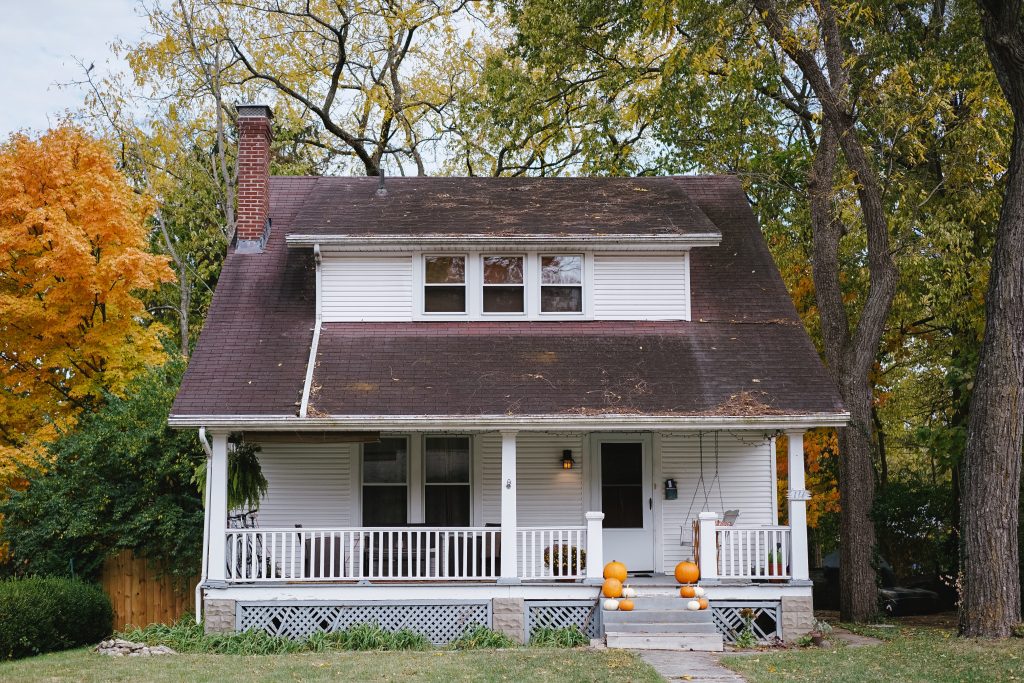Let’s see if a Lady Bird deed is right for you by learning more about what happened with Barbara. Barbara is a successful business owner who runs a small Florida corporation she started 30 years ago. Her success affords her certain perks one might expect as the owner of a company that grosses over $5 million a year. She has a Gulf front condominium in Belleair Beach and a sprawling farmhouse in Sarasota that she shares with a bunch of pigs and an alpaca named Penelope.
Barbara has no children of her own. She has one brother, Claude, and Claude has two adult children, Barbara’s niece and nephew. While she adores her niece and nephew, she feels no such affection for Claude, who is what Barbara calls a professional dirtbag. Claude makes his living from various fraud and financial shenanigans. Barbara herself was once a victim of Claude’s treachery and it cost her over $100,000, a sum she knows she’ll never see again despite the court judgment that says she’s entitled to it. Still, she tucks a copy of the judgment inside Claude’s birthday card every year as a reminder.
Recently, a close friend of Barbara’s who lived down the street from her in Sarasota died. Like Barbara, he had acquired a home worth a substantial amount of money. Despite having a will, his house was the subject of a protracted and bitter fight in the probate court among his heirs. Barbara wants to avoid that happening with her properties when she dies. She wants to be certain that Claude never gets any part of her farmhouse or condo.
Fortunately, Florida offers her a way to do this. That way is a Lady Bird deed.
What is a Lady Bird deed?
A Lady Bird deed is a legal tool that allows an owner of “real property” to transfer it to a beneficiary without the need to submit the matter to the probate court.
In Barbara’s case, even though she has a will that expressly excludes Claude from inheriting anything should she die before he does, without a Lady Bird deed the fate of her “real property” will be determined by the probate court. “Real property” means land or buildings located in this state. It doesn’t apply to land or buildings in another state, territory or country and it doesn’t apply to “personal property,” which includes things like cars, artwork or jewelry.
Thus, only “real property” that is located in Florida can be bequeathed via Lady Bird deed.
If Barbara has a will, why not just go through the probate court?
In Barbara’s case there is nothing to suggest her will was made under duress or that she was not of sound mind when she signed it, so the probate court would very likely order her “real property” be distributed as it prescribes. However, this process can take a long time, a year or more in some situations. It also costs money. Submitting her will to the probate court would also open the door for Claude the Fraud to contest it. Whether or not he succeeds, he could drag the proceedings out for many years. A Lady Bird deed essentially bypasses the probate court with respect to her “real property” and would prevent Claude from contesting it.
How does a Lady Bird deed work?
The process is pretty straightforward, but may seem a little strange. Barbara would transfer the deed to her condo and farmhouse to herself. This transfer would create a “life estate” and make her a “life tenant.” Upon transferring her properties to herself and becoming a “life tenant,” Barbara could then execute a Lady Bird deed and name those she wants to be her beneficiaries, that is, those who will inherit her condo and farmhouse when she dies. Each of these named beneficiaries would then become a “remainder beneficiary.” A “remainder beneficiary” is one whose interest in the property in question vests at a later date. In this case, that would be upon Barbara’s death. A “remainder beneficiary” under a Lady Bird deed has no interest in the “real property” until the death of the “life tenant.” Keep in mind this is different than a traditional life estate which vests immediately. Therefore, a ladybird deed is much more preferable.
Who can Barbara name as a “remainder beneficiary”?
Barbara can name one or more legal adults, that is anyone over 18 years of age, trusts or organizations, such as charities, as a “remainder beneficiary.” It is best to keep it to two or less individuals. For example, she can leave her condo to her niece and nephew, leave her farmhouse partly to a trust set up to pay for their college educations, partly to a trust that will pay for the care of her pigs and Penelope the alpaca, and partly to a charity that helps homeless veterans. Each one can be a “remainder beneficiary” in Florida under her Lady Bird deed. When you are deciding beneficiaries, though, always consider how easy it will be for them to split the house and work together. A ladybird deed used in the wrong manner can also create litigation!
What if Barbara changes her mind after she executes the Lady Bird deed?
Barbara can change any “remainder beneficiary” she wants to at any time or revoke the Lady Bird deed entirely, even over the objection to one or all of them. As we noted above, the “remainder beneficiaries’” interest in Barbara’s “real property” does not vest until her death, thus until that happens Barabara, and Barbara alone, controls what happens to her farmhouse and condo.
Are there tax advantages to a Lady Bird deed?
Yes. If Barbara simply transferred her condo, farmhouse or both to another, the recipient of the property would have to pay a “gift tax.” Generally, the IRS levies a “gift tax” on the value of any property transferred to another in excess of $15,000 when that transfer is made in return for no payment or payment of less than the property’s value. Under a Lady Bird deed, the IRS would consider Barbara’s transfer of her condo and farmhouse as “incomplete gifts” not subject to the “gift tax” until the “remainder beneficiaries’” interest in them vested upon her death. The remainder beneficiary would also receive a “step up” in basis. This is a huge tax advantage! (Talk to your tax planner for more information).
Can Barbara name a minor as a “remainder beneficiary”?
The short answer is that it is not the best idea. In Florida, minors cannot inherit “real property” worth more than $15,000 without appointing a “financial guardian.”
Does a Lady Bird deed make good sense for me?
Only you can determine that. But, if you identify with some or even all of Barbara’s situation, we encourage you to reach out to an experienced estate planning attorney.
Photo by Phil Hearing, https://unsplash.com/@philhearing
Lori Vella is an Estate Planning and Business Attorney. She works virtually throughout Florida and New York, but has her home office in Tampa, Florida. She is mom to a little boy which ignited the passion for helping other families. She and her son enjoy car rides, playgrounds and taking mini-adventures. They also have an organic garden that surprisingly yields vegetables. Lori considers herself well-versed in Seinfeld and welcomes any trivia!
Disclaimer: The Law Office of Lori Vella’s website contains general information directed to Florida residents. This firm does not intend to give legal advice through its pages and/or blog. If you need legal advice, we encourage you to find an attorney licensed in your state. This language on this website does not create an attorney-client relationship between you and this firm.

